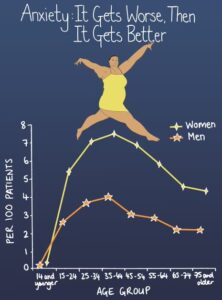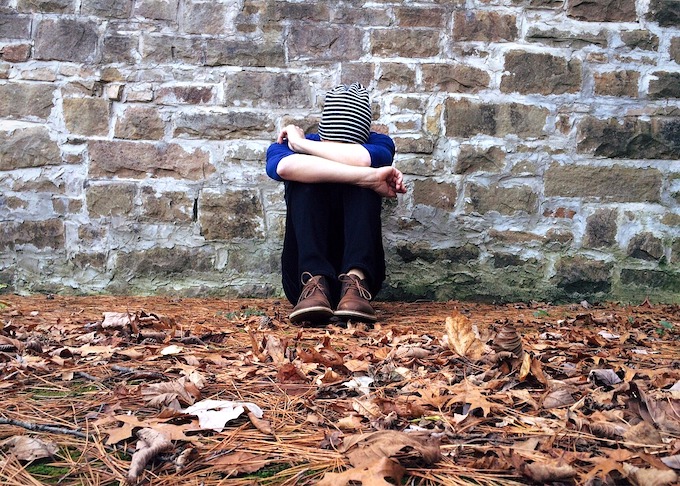The Paradox of Loneliness
The ‘business’ of living can indeed be a lonely one and, among other, it sometimes presents us with what I would like to call the “paradox of loneliness”. Loneliness is a huge, pervasive and often silent experience. Inside our heads we are susceptible to create a new narrative that sometimes is difficult to express in words or in any other way, bringing up a complex emotional state that affects the perception we have of ourselves and others, all of which having an impact on our daily experiences and even affecting the way we function. Understanding loneliness’ nature is by no means an easy thing to do. It can stem from a variety of factors, leading individuals to question whether it is something sought after, an involuntary state, or a blend of both.
This article aims to explore the intricacies of loneliness, its roots, and strategies to break free from its grasp. Thus, the paradox of loneliness.
The Nature of Loneliness
Have you ever been in a room full of people and feeling deeply lonely, not interested at all about what is going on around you? Or even sometimes not being able to connect with people and the environment you are in, and having that ‘urge’ of being somewhere else? Or being by yourself and feeling that you are the last human being standing on this earth?

The paradox of loneliness lies in its duality. On the one hand, it can be sought after, as you might actively seek solitude by distancing yourself from others. Many people may choose, and are able, to live alone and not feel lonely at all. This solitude can provide space for introspection, creativity, and self-discovery. In other words, it can become a place from where you can build something positive, nurturing and rewarding.
On the other hand, when this solitude becomes a somewhat permanent state in which, even if you do not feel comfortable with it, you are in fact involuntarily withdrawing from the rest of the world. This tend to occur when there is a lack of meaningful connections, a fragile sense of self and psychic distress, which is broadly defined as a state of emotional suffering characterized by symptoms of depression (like loss of interest, unhappiness, helplessness and hopelessness) and anxiety (like restlessness, feeling tense) which, by themselves or combined, turn loneliness into a distressing mental state.
Roots of Loneliness
Loneliness can emerge from various sources. It might be triggered by life transitions such as moving to a new city, grieving a loved one, retirement, changing jobs or the end of a relationship. Social isolation, whether due to geographical distance, lack of social skills, or cultural differences, can contribute to a pervasive feeling of loneliness.

Loneliness is a state that we are prone to experience throughout life. I was thinking about the complexities people face during critical transitional period stages such as adolescence and old age, especially considering the innate psychosocial needs for authenticity, competence, security, autonomy, and connection.
On the one hand, the teenage years can be a ‘lonely time’, one of confusion when trying to make sense of ourselves, others, and the type of environment we live in. Different needs can eventually create internal conflicts that makes the transition into adulthood a challenging time. nowadays, in addition to this internal pressure, external factors such as social media puts further pressure on the younger generation’s self-image by creating unrealistic ideas of success, unreasonable expectations arising from interacting with their social circle, and assigning excessive importance to being noticed and validated by others.
The Paradox of Loneliness

Not less complex is the case of minorities, migrants and older people who are certainly among those groups that are susceptible to experience loneliness. In particular, older people sometimes experience dramatic feelings of loneliness and a deep sense of loss as failing health makes them feel ever more vulnerable when families move away or distance themselves.
Loneliness can also be connected to low self-esteem, low self-confidence, stress and social anxiety. Feelings of anxiety and depression may become debilitating, hence disrupting the daily routine.
In general, a prolonged state of loneliness can lead to a slow but steady deterioration of mental, emotional and physical well-being.
Escaping the Grip of Loneliness
Recognizing the complexity and multifaceted nature of loneliness and then owning the feeling can be overwhelming, but it is the starting point of the journey towards finding healthy pathways out of it. Unfortunately, during this vulnerable period, sometimes we may turn towards ‘easier’ and unhealthy strategies to ‘deal’, or not, with this situation by resorting to ‘fix’ ourselves through alcohol and substance abuse, comfort eating, gambling etc. These ‘strategies’ represent a way of desperately trying to ‘fill the void’ and, at the same time, an easy way to avoid dealing with such uncomfortable and difficult feelings.
Here are some healthy strategies that may help breaking the cycle of loneliness:
- Foster Genuine Connections: We are social beings that need building authentic and meaningful connections. Although technology is important in many aspects of our lives, do not deny yourself the opportunity to have a face-to-face interaction, because this gives a more complete dimension to relationships. Engage in hobbies, join groups, or volunteer in activities that align with your personal interests.
- Cultivate Self-Acceptance: Building self-acceptance and self-compassion is crucial in navigating loneliness. Embracing one's strengths and weaknesses can alleviate feelings of inadequacy and enhance self-worth.
- Improve Social Skills: Enhancing social skills can be empowering. Learning to communicate effectively, actively listen, and engage in meaningful conversations can aid in building relationships.
- Embrace Solitude Mindfully: While seeking solitude can be enriching, it is essential to differentiate between healthy solitude and isolating loneliness. Embracing alone time mindfully, without falling into a pattern of social withdrawal, can promote self-reflection and personal growth.
Breaking the Status Quo
Although the above-mentioned strategies are important and helpful, I believe that depending on the intensity and how debilitating the whole experience of loneliness is for the individual, seeking professional help is of paramount importance. Therapy can provide invaluable support in navigating the complexities of loneliness. Therapy can assist in exploring, working and understanding the underlying issues.
The latter may relate to repressed early traumatic experiences that later in life are ‘activated’ by a similar situation that is experienced in the present, therefore bringing back the emotional content of the trauma. Therapy provides a safe and non-judgemental space to talk about difficult thoughts and feelings whereby a collaborative client-therapist relationship enables self-awareness, self-development, and growth.
Breaking free from the status quo of loneliness requires a proactive approach. It demands an active engagement with oneself and the surrounding world. Rather than viewing loneliness as an inevitable fate, reframing it as an opportunity for self-discovery, growth, and connection is pivotal.
In Summary
Loneliness is a complex emotional state that can be both sought after and imposed. Understanding its roots and recognizing the multifaceted nature of loneliness is helpful. Embracing the idea that loneliness is not an inherent trait, but a transient state is relevant in initiating a transformative journey. By fostering genuine and meaningful connections, embracing solitude mindfully, and seeking professional help when needed, individuals can transcend the status quo of loneliness and move towards a more fulfilling existence.
If you are going through moments where you are in a state of loneliness which you are not clear about its origin, and you would like to work on understanding and overcoming it, do not hesitate to contact me to help you understand how we can work together.

